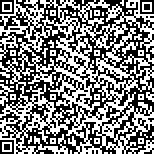| 摘要: |
| 目的 以宗教信仰为视角,探讨少数民族地区牧户的动物疫病防控行为,探索改善牧民防控行为的可行方案,能为少数民族地区动物疫病防控策略的优化提供新思路。方法 文章基于青海省537份实地调查数据,在利用Ⅳ-Probit模型解决内生性问题的基础上,分析宗教信仰对牧户动物疫病防控行为的影响以及信息渠道的调节作用。结果 (1)相比于无宗教信仰者,有宗教信仰的牧户进行动物疫病免疫的概率要低29.0%,进行动物疫病上报的概率要低14.2%,即宗教信仰对牧户动物疫病预防和控制行为均具有显著的负影响,该结论在多种稳健性检验下依旧成立;(2)通过宗教类信息渠道和更多信息渠道数量了解动物疫病防控能有效缓和宗教信仰对牧户防控行为的负影响,即起到负向调节作用。结论 政府要重视宗教对少数民族地区牧户动物疫病防控行为的影响,积极拓展动物疫病防控知识、措施、方式等信息的传播渠道,适当协调宗教组织配合政府普及科学的疫病防控理念,促进宗教与政府、社会之间形成一种良性互动,推动宗教组织为少数民族地区的动物疫病防控做贡献。 |
| 关键词: 宗教信仰 防控行为 牧户 信息渠道 Ⅳ-Probit模型 |
| DOI:10.7621/cjarrp.1005-9121.20240313 |
| 分类号:F326.3;B913 |
| 基金项目:青海省自然科学基金“青海省科技厅重点实验室专项”(2020-ZJ-Y01) |
|
| STUDY ON ANIMAL DISEASE PREVENTION AND CONTROL BEHAVIOR OF HERDERS IN MINORITY AREAS |
|
Wang Ziquan1, Li Jing2, Ma Yuanlian2, Liu Yumei1
|
|
1.School of Economics and Management, China Agricultural University, Beijing 100083, China;2.Qinghai Center for Animal Disease Prevention and Control, Xining 810000, Qinghai, China;3.The Research Key Laboratory for Echinococcosis of Qinghai Province, Xining 810000, Qinghai, China
|
| Abstract: |
| From the perspective of religious belief, this research aims to discuss the prevention and control behavior of animal diseases of herders in minority areas, and explore feasible solutions to improve herders' prevention and control behaviors, so as to provide new thoughts for optimizing animal disease prevention and control strategies in pastoral areas. Based on 537 field survey data in Qinghai province, this study used the Ⅳ-Probit model to address the endogeneity issue, analyzed the influence of religious beliefs on herders' animal disease prevention and control behavior, and the moderating role of information channels. The results were indicated as follows. The baseline regression results showed that herders with religious beliefs were 29.0% less likely to immunize against animal diseases and 14.2% less likely to report animal diseases than those without religious beliefs. That meant religious beliefs significantly inhibited animal disease prevention and control behaviors of herders, and this finding still holds true under multiple robustness tests. Further analysis revealed that learning about animal disease prevention and control through religious-based information channels and a more significant number of information channels lessened the inhibitory effect of religious beliefs on herders' prevention and control behaviors, meaning a negative moderating effect. In summary, the government should pay attention to the influence of religion on animal disease prevention and control behavior of herders in minority areas, actively expand the channels for disseminating information on animal disease prevention and control knowledge, measures, and methods. And it also should appropriately coordinate religious organizations to cooperate with the government in popularizing scientific concepts of disease prevention and control, promote a positive interaction between religion, government, and society, so as to promote religious organizations to contribute to preventing and controlling animal diseases in minority areas. |
| Key words: religious belief prevention and control behaviors herder information channel Ⅳ-Probit |

